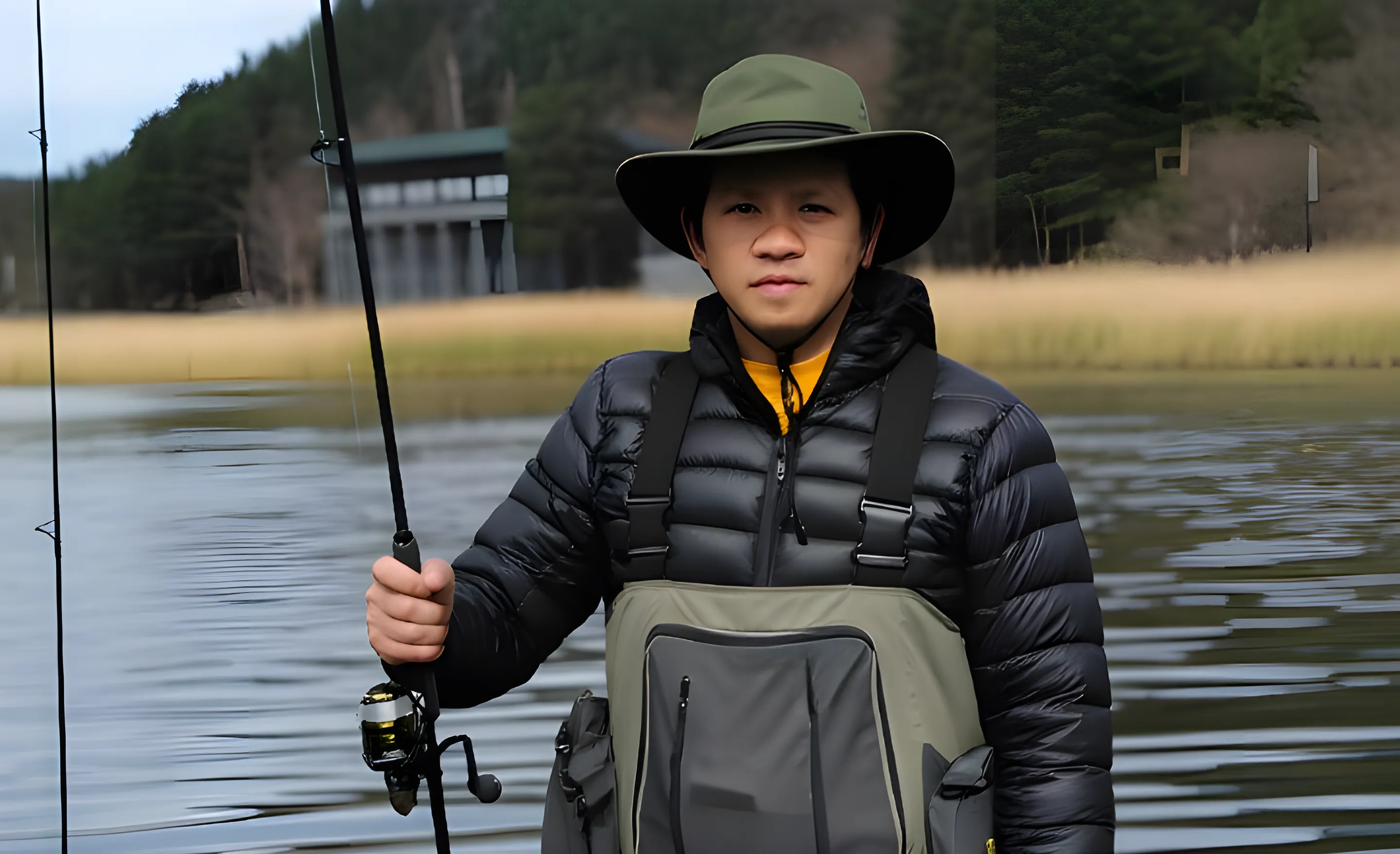Bass Fishing vs. Trout Fishing: An Angler's Complete Guide
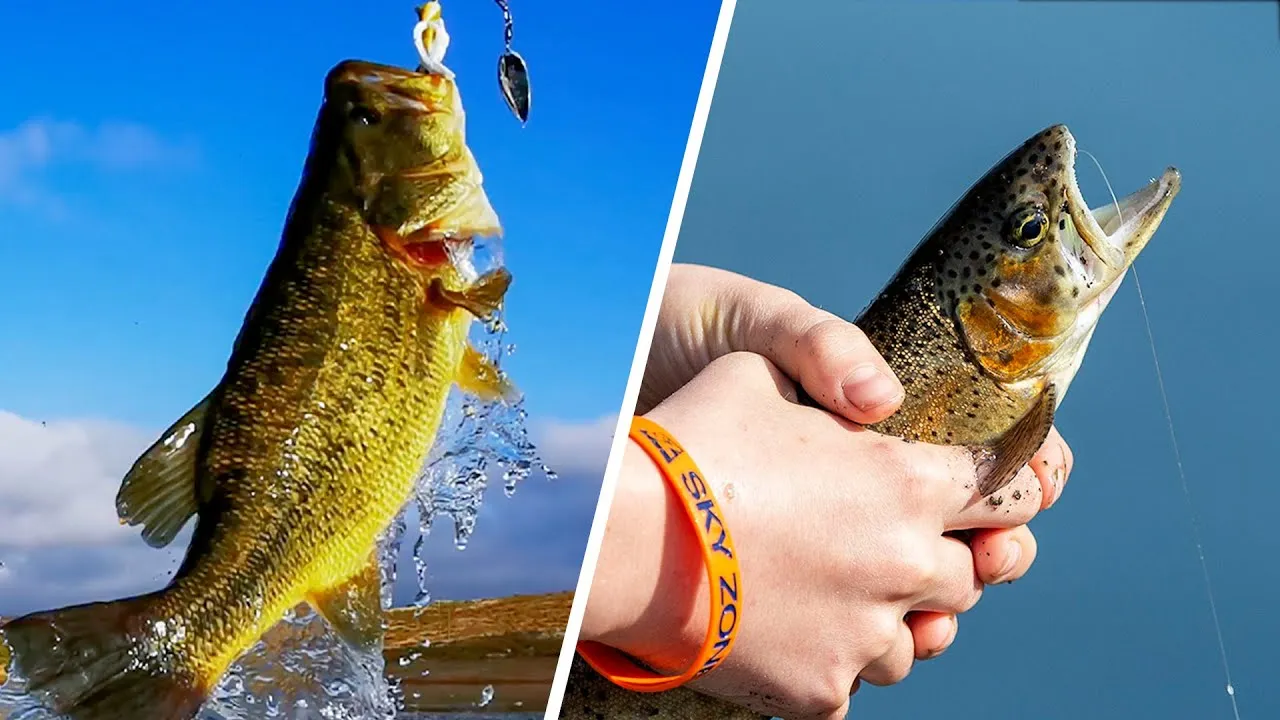
If you’ve ever stood in a tackle shop, you've seen the great divide: the aisle of heavy-duty bass gear on one side and the delicate, precise trout tackle on the other. This isn't just about two different species; the bass fishing vs trout fishing debate is truly about two different angling philosophies. As an angler and writer for riversiderelics.com, I've spent countless hours on both sides of that aisle. This guide is built from those years on the water to help you understand which pursuit fits your style, what to expect, and how to succeed whether you're chasing a powerful largemouth in a weedy lake or a wary brown trout in a crystal-clear stream.
At a Glance: Bass vs. Trout Comparison Table
| Feature | Bass (Largemouth & Smallmouth) | Trout (Rainbow, Brown, Brook) |
| Habitat | Warm, slow-moving lakes & rivers | Cold, clean, fast-moving streams & rivers |
| Water Temp | 65-85°F (18-29°C) | 50-60°F (10-15°C) |
| Mindset | Power & Aggression | Finesse & Precision |
| Gear | Med-Heavy Baitcasting/Spinning | Ultralight Spinning / Fly Rod |
| Line | 10-20 lb Test | 2-6 lb Test |
| Primary Diet | Fish, Crayfish, Frogs, Anything | Insects, Small Fish, Worms |
| Technique | Triggering reaction strikes | "Matching the hatch" with natural presentation |
| The Fight | Short, powerful, dives for cover | Fast runs, acrobatic leaps |
| Taste | Firm, white meat, stronger flavor | Delicate, flaky, mild & nutty flavor |
| Beginner Friendly? | Yes, more forgiving and accessible | Challenging, steeper learning curve |
What Are the Habitat and Water Differences?
The most fundamental difference in the bass fishing vs. trout fishing discussion is habitat. Where a fish lives dictates everything about how you catch it.
Bass (The Warmwater Brawlers)
Bass, especially largemouth, thrive in warm, slow-moving water, typically from 65°F to 85°F (18°C to 29°C). While there are many different types of bass, from the popular largemouth to the hard-fighting smallmouth, they all share a preference for structure.
Think of classic "fishy" spots:
-
Lakes, ponds, and reservoirs.
-
Weed beds and lily pads.
-
Submerged logs and timber.
-
Boat docks and rocky points.
Bass use this cover to ambush prey. For me, finding structure is the first step to finding bass.
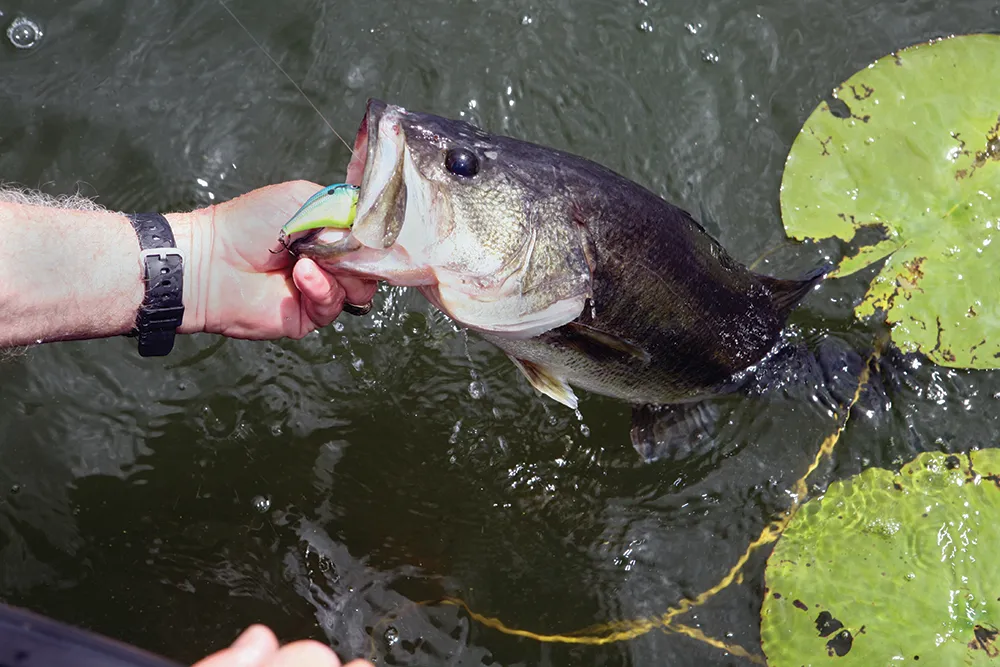
Trout (The Coldwater Specialists)
Trout are far more demanding. They need cold, clean, and highly oxygenated water to survive, usually between 50°F and 60°F (10°C to 15°C).
You'll find them in:
-
Clear mountain streams and rivers.
-
Spring-fed creeks.
-
Deep, cold lakes.
-
Tailwaters (the cold outflow below dams).
Unlike bass, trout are sensitive to pollution and heat. Chasing trout often means hiking to beautiful, remote locations.
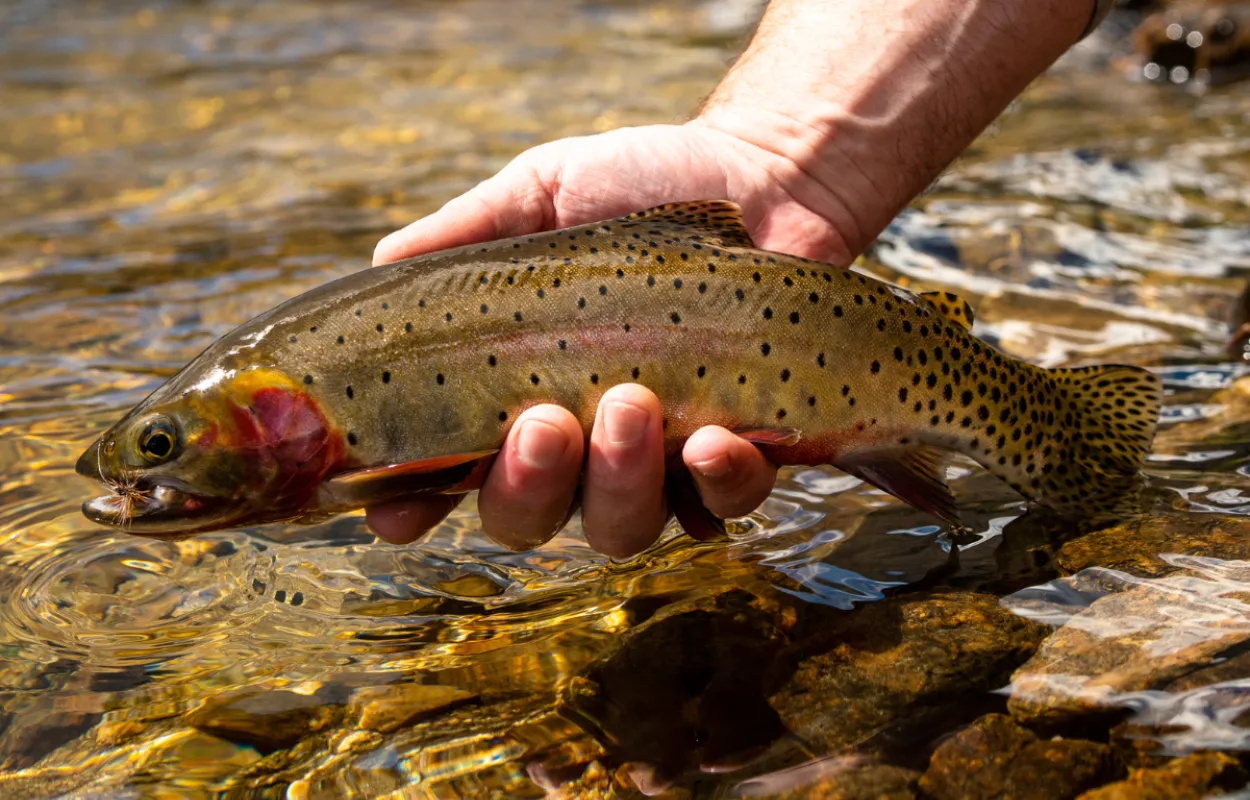
What Are the Key Gear Differences in Bass Fishing vs Trout Fishing?
Your gear is your connection to the fish, and the wrong choice will lead to frustration.
Bass Fishing Gear
This is about power. You need gear to pull aggressive fish out of heavy cover.
-
Rods: Medium to Medium-Heavy power baitcasting or spinning rods.
-
Reels: Baitcasting reels for power and accuracy; spinning reels for versatility.
-
Line: 10-20 lb test fluorocarbon or braid.
-
Lures: Larger, attention-grabbing lures like crankbaits, spinnerbaits, jigs, and soft plastics. Choosing from the best bass fishing lures often depends on water clarity and what you're trying to imitate.
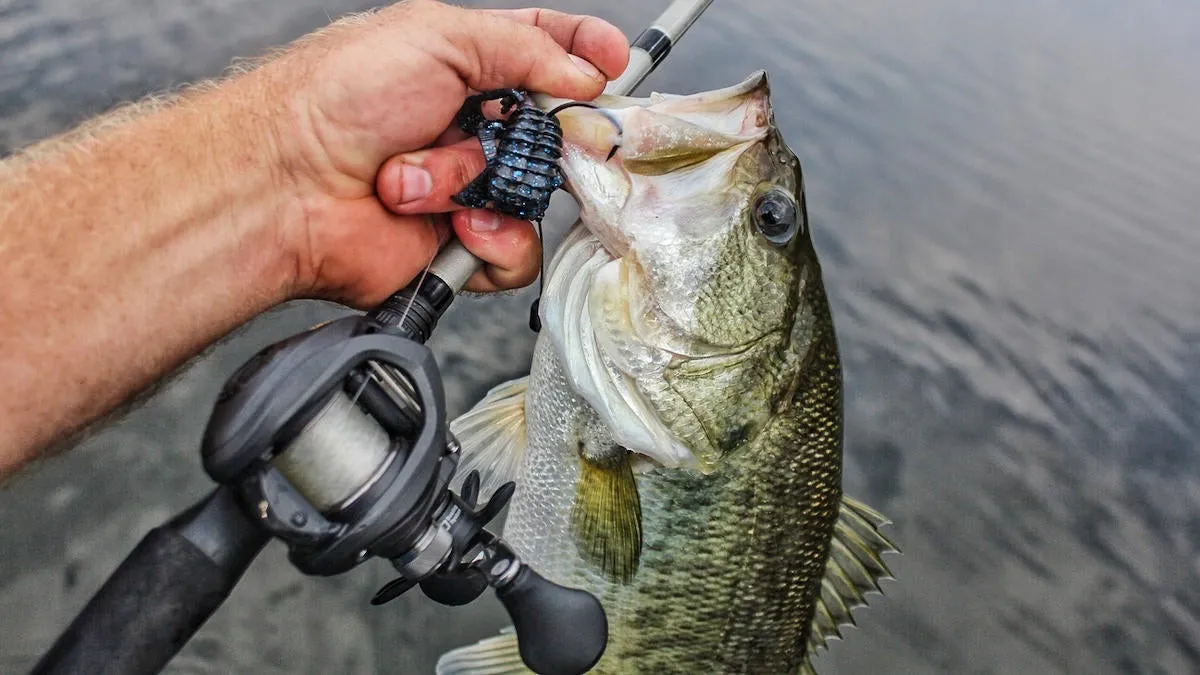
Trout Fishing Gear
This is about subtlety. Heavy gear will spook these wary fish.
-
Rods: Ultralight spinning rods or 3-5 weight fly rods.
-
Reels: Small spinning reels or a simple fly reel.
-
Line: 2-6 lb test monofilament or fluorocarbon, or a specialized fly line.
-
Lures/Flies: Tiny inline spinners, small spoons, or a wide array of flies that imitate insects.
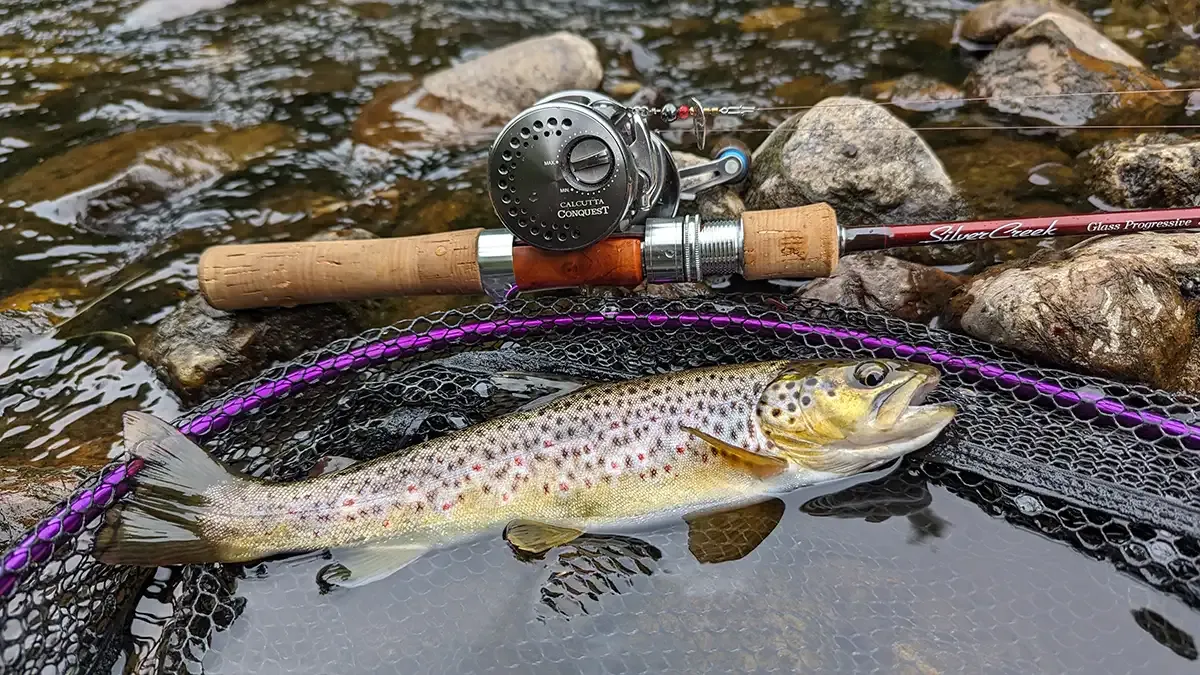
How Do Bass and Trout Differ in Feeding Behavior?
Understanding how each fish eats is critical to your success.
Bass: The Opportunistic Predator
Bass often strike out of pure aggression, instinct, or territorial defense - not just hunger. This is why you can "trigger" a bite. Knowing the best time to fish for bass, like early mornings in the summer, can significantly increase your chances of finding these aggressive feeders.
They react to movement, vibration, and flash. A noisy topwater lure doesn't imitate anything real, but a bass will crush it just for invading its space.
Trout: The Selective Feeder
Trout are analysts. They are famous for "matching the hatch"-eating what insects are currently most abundant.
I've spent hours on a river being ignored by trout until I switched to a tiny size 22 midge fly that perfectly matched the natural insects. Presentation is everything; if your lure or fly drifts unnaturally, they will reject it.
What’s the Difference in Fighting Bass vs Trout?
Hooking the fish is only half the battle. The fight is a huge part of the thrill.
Fighting a Bass
A bass fight is a short, violent brawl. They are notorious for digging down into the thickest weeds or wrapping your line around a submerged log. You have to use heavy gear to steer them away from cover and control the fight. It's a test of strength and leverage.
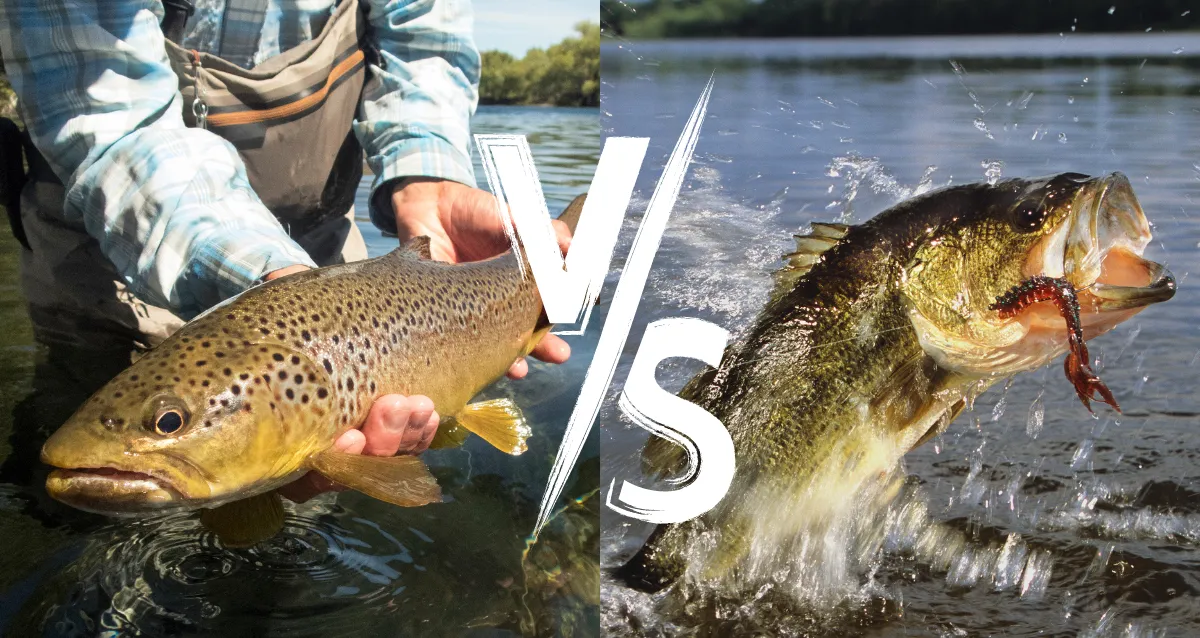
Fighting a Trout
A trout fight is a game of speed and acrobatics. They make fast, surging runs and often leap out of the water. With their delicate mouths and the light line you're using, you must have a gentle hand. You can't muscle a trout; you have to tire it out with steady pressure. It's a test of patience and finesse.
Which Fish Tastes Better – Bass or Trout?
For many anglers, the reward at the end of the day is a fresh fish dinner.
Bass
Largemouth bass has a firm, white, flaky meat. Its flavor is stronger than trout and can sometimes have a "muddy" taste, especially if caught in warm, stagnant water. Fish from cleaner, cooler water taste much better. It's excellent when fried or baked.
Trout
Trout, particularly Rainbow or Brown Trout, is one of the most popular table fish. It has a more delicate, mild, and often nutty flavor with a softer, oilier texture (in a good way!). It's fantastic when grilled, smoked, or pan-seared with just lemon and herbs.
The Verdict: For pure taste, most people prefer trout. However, a well-cooked bass from a clean lake is also delicious.
Which is Better for Beginners?
This is a common question, and the answer depends on your goals and location.
Bass fishing is generally easier for beginners. The gear is more forgiving, the techniques are often less subtle, and bass are widespread in accessible lakes and ponds across the country. You can have fun and catch fish just by casting and retrieving a simple spinnerbait.
Trout fishing has a steeper learning curve, especially fly fishing. It requires more patience, a deeper understanding of the ecosystem ("matching the hatch"), and often takes place in less accessible locations. However, the reward is an incredibly deep and satisfying hobby set in beautiful scenery.
My Advice: Start with bass to learn the fundamentals of casting and fighting fish. Once you're hooked, give trout fishing a try to challenge yourself and develop your finesse skills.
FAQs
Conclusion
In the end, the choice in bass fishing vs trout fishing boils down to a classic angling question: power or finesse? One demands strength and aggression to pull fish from warm, heavy cover, while the other requires a delicate touch and precise presentation in cold, clear water. Rather than choosing a side, the best advice is to embrace both. Mastering the distinct challenge each species offers won't just give you more opportunities to fish; it will fundamentally make you a more complete, adaptable, and successful angler, ready for any water you encounter.
Aviv Nguyen is a passionate fisherman who loves sharing stories and tips from his fishing adventures. Whether it’s freshwater or sea, he finds joy in every cast and aims to inspire others to enjoy the great outdoors through fishing.
Share This Post With Friends

